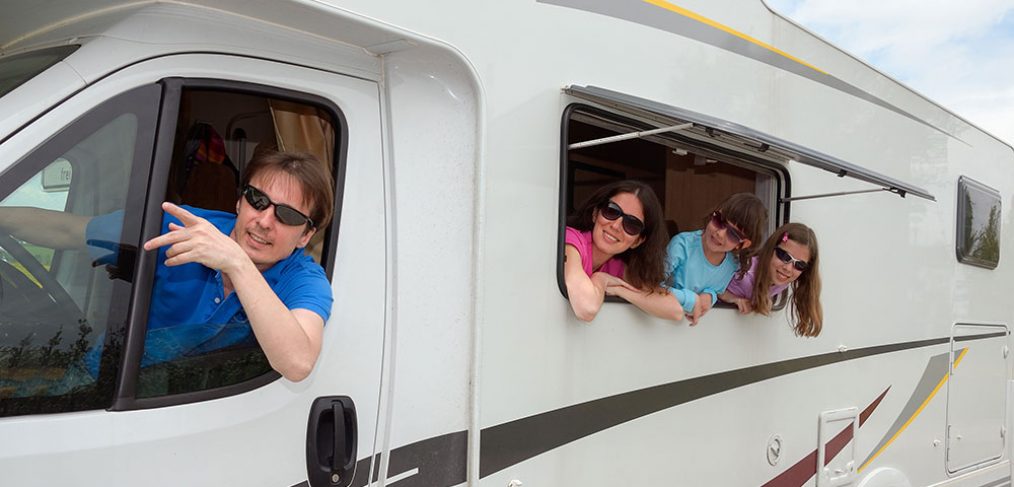Are you ready to hit the open road and embark on the exciting adventure of RV life? Whether you’re considering full-time living in an RV or just looking to explore the great outdoors on weekends, there are likely many questions swirling around in your mind. In this blog post, we’ll answer the top 10 questions you may have about RV life, helping you navigate this new and exciting lifestyle with confidence.
What Types of RVs Are Available?
Diving into the world of RVs, you’ll find a rich variety designed to cater to every adventurer’s dream. Starting with motorhomes, which are divided into Classes A, B, and C, each offering different levels of comfort and space. Class A motorhomes are the largest, providing ample room and luxury, akin to a rolling estate. Class B motorhomes, often referred to as camper vans, offer a more compact and efficient option, ideal for those who prioritize ease of maneuverability and fuel efficiency. Class C motorhomes strike a balance between the two, offering a mix of comfort and practicality with their distinctive cab-over design.
Travel trailers present another popular choice, available in a wide range of sizes, from lightweight options that can be towed by a standard SUV to larger models that require a more powerful vehicle. Fifth wheels, recognized for their split-level design, offer the space and amenities of a Class A in a towable format, requiring a special hitch in the bed of a truck for secure towing.
Pop-up campers and teardrop trailers represent the more minimalist end of the spectrum, perfect for those seeking simplicity and intimacy with nature. These models prioritize ease of towing and affordability while providing a step up from tent camping.
Each type of RV brings its own unique flavor to the table, allowing you to tailor your journey to your specific desires and requirements. Whether you’re drawn to the luxury of a motorhome or the simplicity of a pop-up camper, the perfect RV is out there waiting to be your home away from home.
How Much Does an RV Cost?
Navigating the financial aspects of embarking on RV life is pivotal. The price tag of an RV swings broadly, tethered closely to its type, size, and the suite of amenities it houses. For those dipping their toes into the RV world, modest, entry-level options may beckon with prices starting in the vicinity of $10,000. On the opposite end of the spectrum, seekers of luxury and expansive comfort can anticipate investments that easily breach the $100,000 mark. Charting a course through this financial landscape requires setting a prudent budget and exploring financing avenues that align with your economic parameters. This careful financial planning is a cornerstone in transforming the dream of RV life into a tangible, exhilarating reality.
Do I Need a Special License to Drive an RV?
Navigating the regulations surrounding RV operation, it’s generally understood that a special license is not a prerequisite for driving most RVs, as long as they adhere to specific size and weight thresholds. This aspect underscores the accessibility of RV life, inviting enthusiasts from various walks of life to partake without the burden of acquiring additional licensure. Nonetheless, it’s paramount to delve into the legal stipulations unique to your state or any state you plan to traverse. These local guidelines may dictate exceptions based on the RV’s dimensions or weight class, ensuring safe and lawful travel. Thus, a preliminary check into these specifics can pave the way for a seamless journey, free from unwelcome surprises, allowing you to focus on the adventure that awaits.
What About Insurance for an RV?
Securing insurance for your RV isn’t just a prudent step—it’s a necessity for safeguarding your nomadic home against unforeseen events. The type of coverage you’ll need can vary significantly based on whether your RV is your full-time residence or a vehicle for occasional adventures. Comprehensive policies can cover everything from collision damage and theft to liability should your RV cause injury or property damage. It’s crucial to engage with an insurance provider that understands the unique aspects of RV life, allowing you to craft a policy that mirrors your specific needs and usage patterns. Remember, investing time in comparing insurance options can ensure you’re not only compliant with legal requirements but also equipped with peace of mind as you explore the open road.
How Do I Connect to Water, Power, and Sewer in an RV?
Mastering the art of connecting your RV to water, power, and sewer services is essential for ensuring a smooth and comfortable journey. Begin with connecting your RV to a water hookup using a food-grade water hose to avoid contamination and ensure safe drinking water. For electricity, locate the RV’s power cord and plug it into the campground’s electrical hookup, matching the amperage requirements of your vehicle. Managing sewer connections involves attaching a durable sewer hose from your RV’s waste outlet to the sewer drain at your site. Each of these steps is vital for maintaining the functionality and hygiene of your RV, making your travels both enjoyable and worry-free. Embracing these utility hookups with confidence will significantly enhance your RV living experience, allowing you to focus on the adventure and joy of exploration.
Can I Live in an RV Full-Time?
Embracing RV life full-time isn’t just a fleeting fantasy—it’s a viable lifestyle choice for a growing number of adventurers seeking freedom and simplicity. Transitioning to full-time RV living involves a tapestry of considerations, from establishing a sustainable routine to addressing logistical matters such as domicile and mail forwarding. This mode of life encourages a minimalist approach, prompting a reevaluation of what possessions truly add value to your life. Moreover, it demands adaptability, as living spaces and locales shift with the turning wheels. The key to thriving in this dynamic environment lies in meticulous planning and an open heart, ready to embrace the myriad experiences that full-time RV living unfurls.
Where Can I Park and Stay in My RV?
The world is your oyster when it comes to parking and residing in your RV, offering a spectrum of choices to fit every traveler’s preference. From the communal vibes of campgrounds and RV parks, which often come equipped with essential amenities, to the rugged allure of boondocking on public lands where nature is your neighbor, the options are plentiful. For those seeking a more personal touch, driveway surfing with friends and family can provide a welcoming stay. Each route presents unique advantages, whether it’s the convenience of facilities, the beauty of unspoiled landscapes, or the warmth of familiar faces. Diving into the specifics of each possibility, ensuring compliance with local regulations, and considering the needs of your journey are key steps in charting a course that resonates with your vision of RV life.
What Maintenance Does an RV Require?
Maintaining an RV is akin to nurturing a mobile sanctuary; it demands attention to detail and regular check-ups to ensure its longevity and reliability. This involves routine inspections of the engine and battery, ensuring the fluid levels are optimal, and the brakes are functioning correctly. Equally important is the care of your RV’s exterior; checking the roof, seals, and windows for leaks can prevent water damage, a common ailment of neglect. Internally, the plumbing and electrical systems require periodic servicing to keep them running smoothly, avoiding potential issues down the road. Additionally, tire maintenance is crucial for safe travels, including regular pressure checks and alignments. Embracing these maintenance rituals not only preserves the health of your RV but also enriches your journey, making every mile a testament to the care invested in your home on wheels.
How Do I Secure My RV While Traveling?
Ensuring your RV remains a safe haven while exploring the vast terrains requires a proactive approach to security. A robust security system acts as a sentinel, offering surveillance and alerts, while sturdy locks on doors and windows form the first line of defense against intruders. Cultivating awareness of your environment plays a crucial role; choosing well-lit, secure parking spots can deter potential threats. Additionally, incorporating wheel locks and a hitch lock when parked extends an added layer of security, anchoring your RV firmly to its spot. By integrating these strategies, you create a fortress for your mobile lifestyle, allowing you to immerse in the joys of travel with an anchored sense of security.
Can I Customize My RV?
Transforming your RV into a personalized haven is not only possible, but it’s also part of the adventure that RV life offers. From aesthetic enhancements like interior updates and exterior paint jobs to functional upgrades such as the addition of solar panels for sustainable energy or enhanced storage solutions for your gear, the scope for customization is vast. Your journey in making an RV truly yours invites a blend of practicality and creativity. Dive into the myriad of modification options available, tailoring your space to reflect your style and meet your travel needs. This personalization process not only elevates your comfort and efficiency on the road but also imbues your RV with a sense of home, no matter where your wheels take you.

